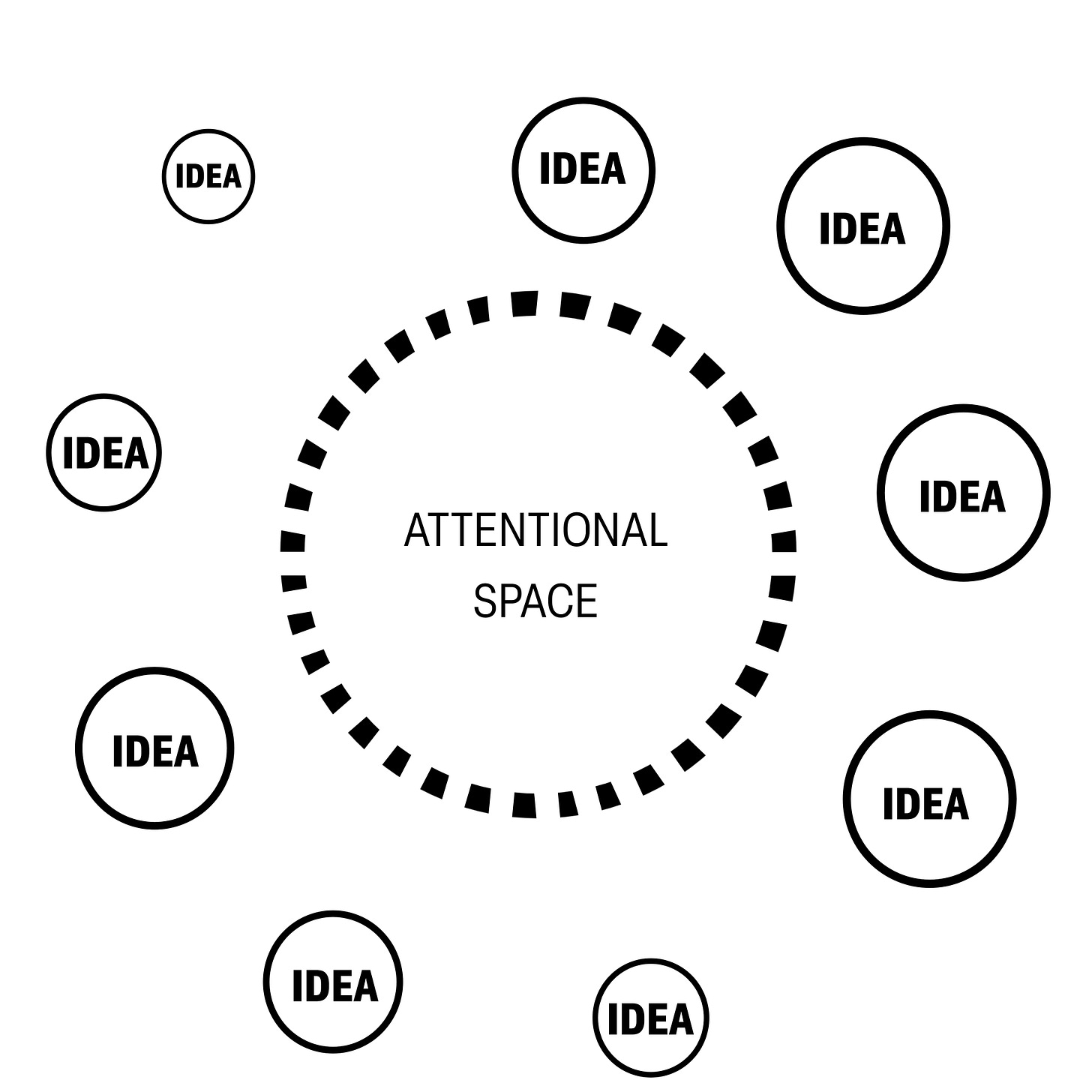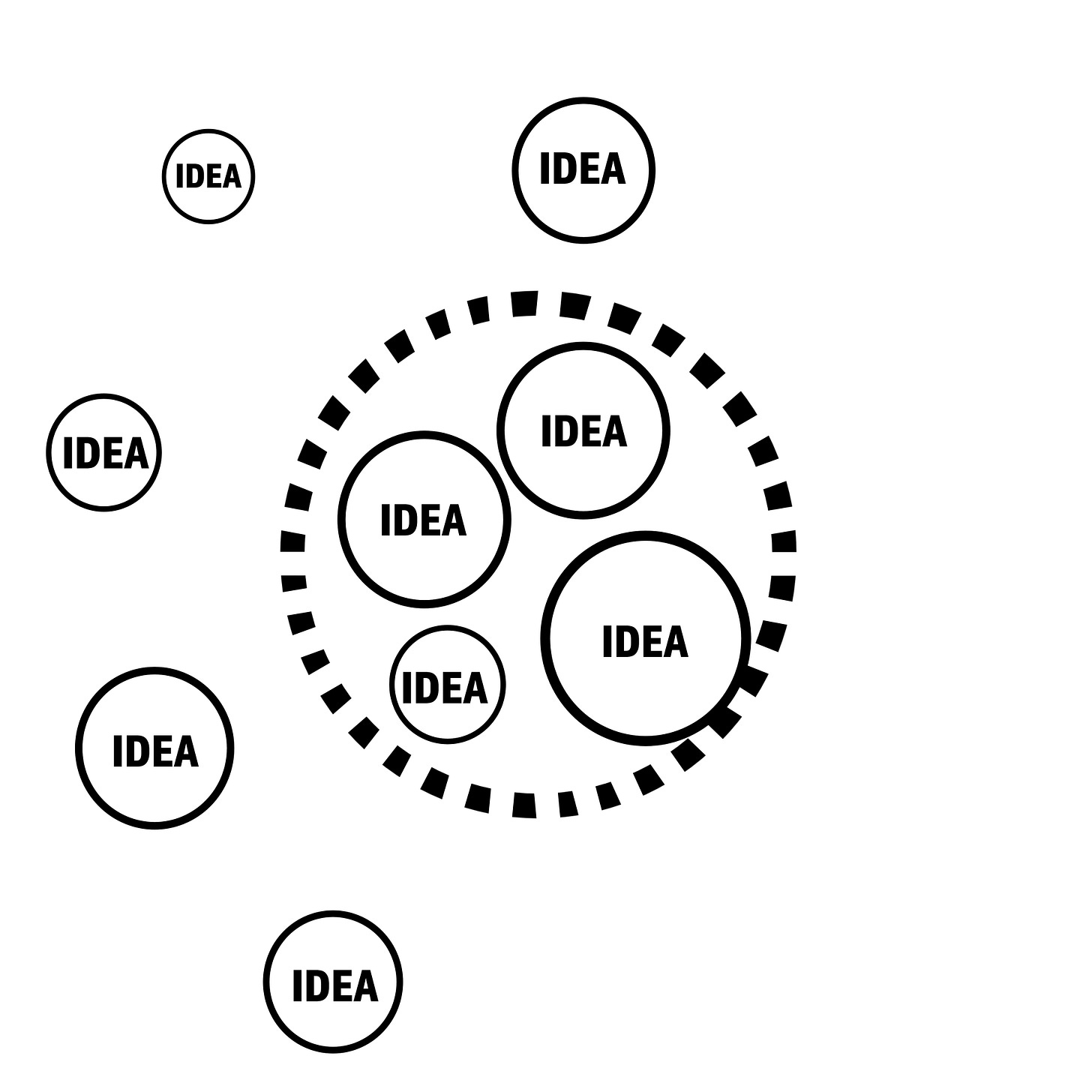People are Getting Dumber. Here's How to NOT Join Them
My goal is to make at least 70% of you very uncomfortable with this newsletter.
My goal is to make at least 70% of you very uncomfortable with this newsletter.
Did you know people are constantly making themselves dumber? Others are lining up to join them. Well, some.
Attention is the gateway to intelligence
One of my favorite books I’ve read is called Hyperfocus by Chris Bailey. So there I was, fervently reading when he dropped an absolute landmine on my unsuspecting brain. It was one of those landmines that takes a few seconds to go off, but you absolutely know it’s going to blow you away.
Most people use knowledge to grade their intelligence, but in reality, attention is a greater determinant of intelligence.
Essentially, attentional space = level of intelligence.
I waited quietly for the dust to settle, while intensely wishing I hadn’t let a spiderweb distract me a few minutes ago. The timing of such things is impeccable.
But the book wasn’t done with me yet. Just in case I was assuming it wasn’t that bad, Chris went on to site a book written on this subject, estimating that 80% of my intellect was determined by my attentional space. Attentional space being how many pieces of data you can hold in your mind simultaneously. Also known as “Working memory capacity.”
Jordan Peterson says something similar. He says “Attention informs intellect.”
This is mildly terrifying. Supposedly your IQ doesn’t fluctuate a lot, but your attentional space absolutely does. Media corporations are willing to pay billions of dollars to learn how to captivate your attentional space. The lower your attentional space gets, the easier it is for them. Needless to say, the deck isn’t exactly in our favor.
What is attentional space?
We need to know what attentional space is if I’m going to claim that it affects your intelligence. This is worth understanding because attentional space isn’t the same as “attention span.” They are connected, but not interchangeable. Don’t hear me say that you’re as smart as a goldfish.
Attention span is the amount of time you can focus on something before getting distracted.
Attentional space is more of a bulletin board in the shape of a circle. You can pull pieces of information and pin them on the board. This allows you to edit, manipulate, or formulate ideas on what you pulled into your attentional space.
Take the figures below. Right now I’m pulling 2-3 different ideas for this newsletter into my attentional space, holding them, and writing off the conclusions I formulate. Over time they shift around as I pull other ideas in that I want to write about.
Right now a bit of my attentional space is being taken by the music in the background of this coffee shop, I’m holding these visuals in my mind, while simultaneously holding what I’m trying to communicate to you and then putting all that into words.
As you can see, the bigger your attentional space, the more ideas you can work with at any given time. We are always filling our attentional space with something. Sometimes a task takes up our total attentional space. When going into flow, that task should fill your attentional space almost completely, which is why I’m making a focus planner that helps me do that.
Distraction is when one of the ideas that comes into your attentional space is totally different and pushes the others out. For example, right now I’m tempted to look up a particular topic on YouTube that I might start another channel about. If I did that, it would effectively squash out the other chunks of information I’m working with.
The greater your attentional space, the greater your productivity, and creativity, the longer your focus ability, and the lower your proclivity to distraction.
A good communicator is a good example of someone with a high attentional space. They can hold what you said, their opinion, and still leave enough space to communicate back to you. A poor communicator can’t hold their opinion and yours at the same time. So they banish or shrink your opinion and cling to their own, obviously, because they’re right… or so they think.
We are destroying our attentional spaces
You know where I’m going with this.
Which is why most of you are uncomfortable right now. Hopefully.
But I might surprise you with my opinion here.
1. Social media consumption. Specifically short-form content.
This should go without saying.
Here’s what’s interesting about social media consumption. Specifically short-form. In and of itself I don’t think it destroys our attentional spaces. Sure, it seems to lower our attention span, but here again, I think it’s partly due to something else.
Your attentional space shrinks along with your mental energy. Short-form content is exhausting for your attentional space and shrinks it incredibly fast. It’s the equivalent of reading one sentence from a different book as fast as you can for 30 minutes. It’s not cohesive in the slightest, also you are effectively yanking your brain in 500 different directions for 30 minutes.
Following that your attentional space will be substantially less. Then you’re fighting an uphill battle. Chronic behavior like this, especially at a young age will shrink your attentional space and span as a whole. That’s bad.
Do you want to be entertained, or intelligent? It’s weird people are choosing between these two.
Consistent consumption of social media in this vein for long chunks of time will make you less intelligent. Feel free to disagree with me.
2. Intentionally NOT thinking
This is partly what I meant when I said that I don’t think social media in and of itself is the problem. I think it exacerbates the problem, but the reason people consume it is so they don’t have to think.
Thinking requires the use of attentional space. It’s amazing to me what people will do to avoid thinking as illustrated in last week’s newsletter.
Such as when someone is confronted with an idea they don’t agree with. Generally speaking, they search Google until they prove the idea wrong, instead of, you know, thinking about it.
These are the two main ways we can actively make ourselves dumber. You know, if we wanted to.
Well, that was depressing, but don’t worry, we won’t leave it there. Let’s look at how to increase our attentional space and effectively increase our intelligence.
How to increase our attentional space
There are lots of ways to better manage the space you have, but only two ways to increase it. And despite what brain training apps tell you, they don’t have what it takes.
Keep reading with a 7-day free trial
Subscribe to The Undistracted Life to keep reading this post and get 7 days of free access to the full post archives.






